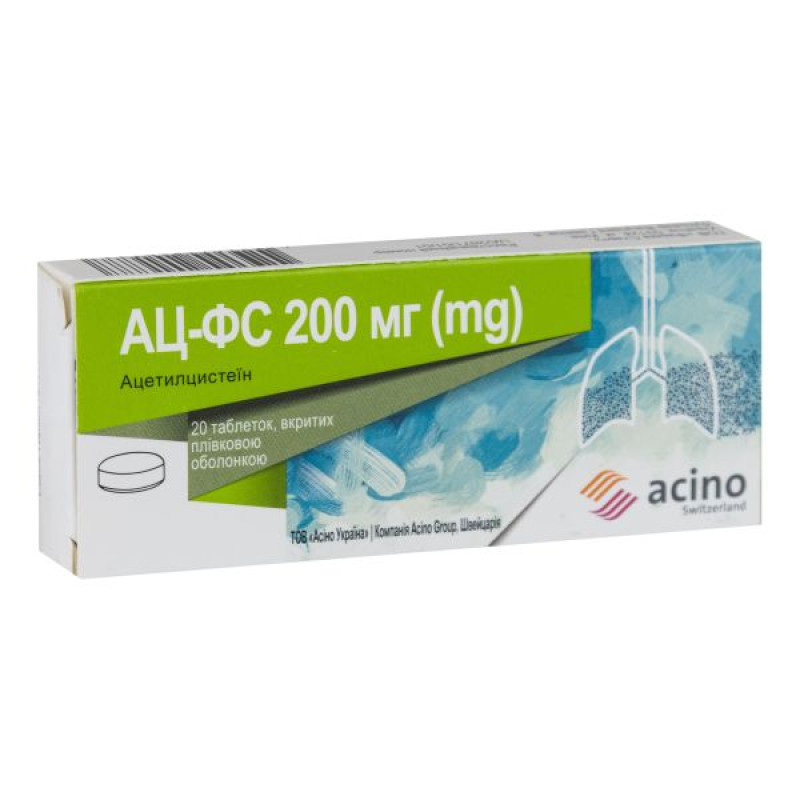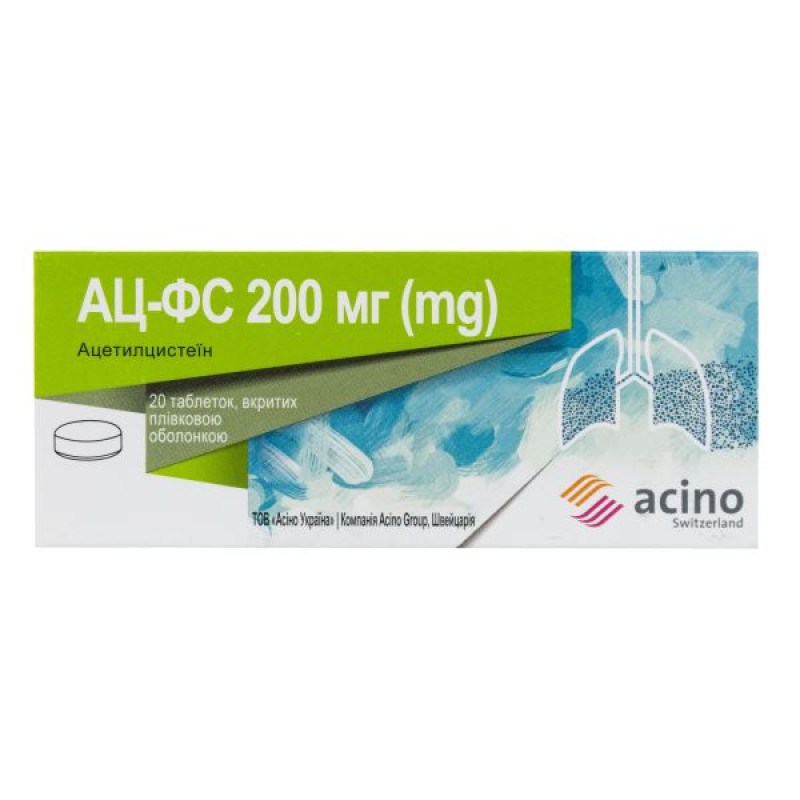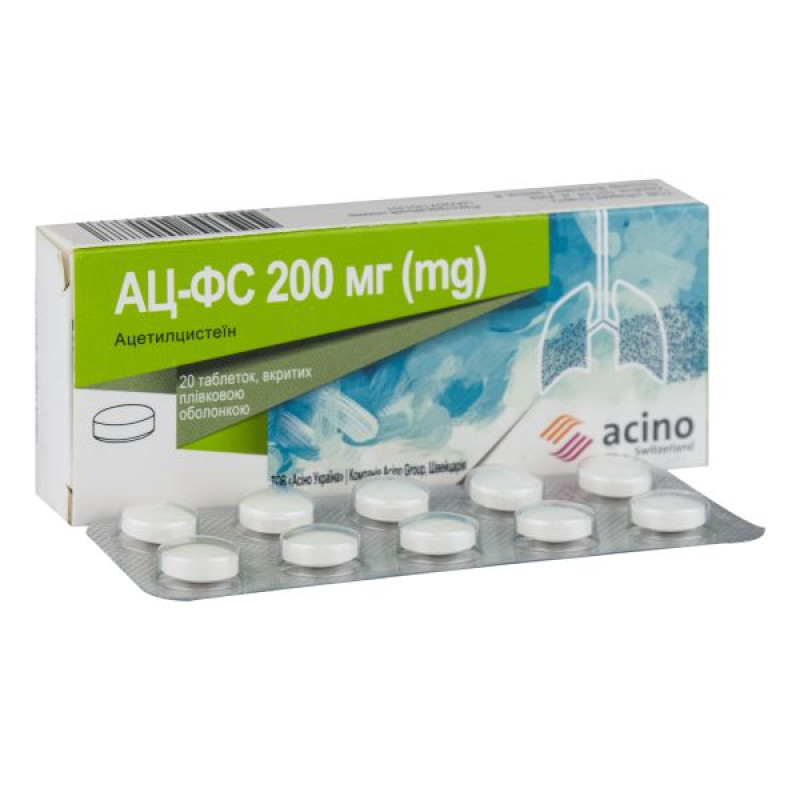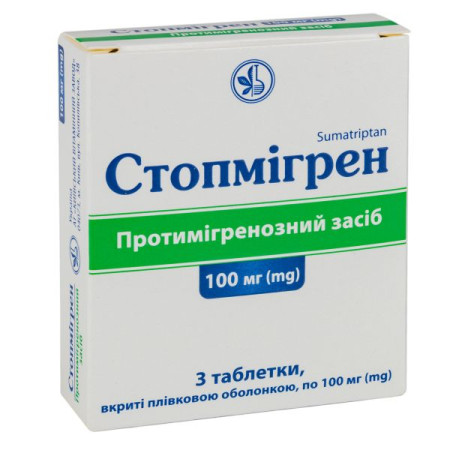AC-FS film-coated tablets 200 mg blister No. 20

"AC-FS" tablets are used to treat acute and chronic diseases of the bronchopulmonary system that require reducing the viscosity of sputum, improving its discharge and expectoration.
Composition
The active substance is acetylcysteine (one tablet contains 200 mg of acetylcysteine).
Excipients: microcrystalline cellulose, lactose monohydrate (tabletose), corn starch, magnesium stearate, coating for applying the shell Opadry II White (polyethylene glycol, polyvinyl alcohol, talc, titanium dioxide (E 171)).
Contraindication
hypersensitivity to acetylcysteine or any component of the drug; gastric and duodenal ulcer in the acute stage; pulmonary bleeding; hemoptysis; severe exacerbation of asthma.Method of application
The drug "AC-FS" is prescribed orally:
Adults and children over 14 years old - 200 mg 2-3 times a day; children aged 6 to 14 years old - 200 mg 2 times a day.The drug should be taken after meals, swallow the tablets without chewing, with sufficient water.
The duration of use is determined by the doctor depending on the severity of the disease and the clinical response to treatment. The drug should not be taken for more than 4-5 days without consulting a doctor.
During treatment with acetylcysteine, additional fluid intake is recommended to enhance the mucolytic effect.
Application features
Pregnant women
It is known that clinical data on the use of acetylcysteine in pregnant women are limited. There is evidence that animal studies do not indicate direct or indirect harmful effects with respect to pregnancy, embryo-fetal development, parturition and postnatal development.
Breastfeeding. There is no information on the penetration into breast milk.
The drug should be taken during pregnancy and breastfeeding only after a careful assessment of the benefit/risk ratio.
Children
Given the dosage form, the drug should not be prescribed to children under 6 years of age.
Drivers
There is no data on the negative impact of the drug on the reaction speed when driving vehicles or other mechanisms.
Overdose
There are no data on cases of overdose with oral administration of acetylcysteine.
Symptoms: Overdose may manifest as gastrointestinal symptoms such as nausea, vomiting and diarrhea. Children are at risk of hypersecretion.
Therapy: there is no specific antidote for acetylcysteine poisoning, treatment is symptomatic.
Side effects
The frequency of adverse reactions is determined by classification: very common (≥ 10%), common (≥ 1%, <10%), uncommon (≥ 0.1%, <1%), isolated (≥ 0.01%, <0.1%), rare (<0.01%), frequency unknown (the data obtained do not allow to estimate the frequency).
On the part of the immune system: infrequently - hypersensitivity; rare - anaphylactic shock, anaphylactic / anaphylactoid reactions.
Blood and lymphatic system disorders: frequency unknown - anemia.
From the cardiovascular system: infrequently - tachycardia, arterial hypotension; rare - hemorrhages.
From the nervous system: infrequently - headache.
From the side of the organs of hearing and labyrinth: infrequently - ringing/tinnitus.
On the part of the respiratory system: rare - shortness of breath, bronchospasm (mainly in patients with hyperreactivity of the bronchial system, associated with bronchial asthma); frequency unknown - rhinorrhea.
Gastrointestinal tract: rarely - heartburn, nausea, vomiting, abdominal pain, diarrhea, stomatitis; rare - dyspepsia; frequency unknown - bad breath.
Skin and subcutaneous tissue disorders: infrequently - itching, urticaria, rash, angioedema; frequency unknown - rash, eczema, angioedema.
When using acetylcysteine, isolated cases of severe skin reactions (Stevens-Johnson syndrome and Lyell syndrome) have been reported, and isolated cases of bleeding have been observed, most often associated with the development of hypersensitivity reactions.
Isolated cases of anaphylactic reaction or even shock, cases of anemia have been reported. In most cases, at least one other drug is more likely to be the cause of mucocutaneous syndrome. If skin or mucous membrane changes occur, consult a doctor immediately and discontinue use of acetylcysteine.
There have been reports of inhibition of platelet aggregation, but there is no clinical evidence of this.
If any undesirable effects occur, you should consult a doctor about the possibility of further use of the drug.
Storage conditions
Store in the original packaging at a temperature not exceeding 25 °C, out of the reach of children.
Shelf life - 3 years.
There are no reviews for this product.
There are no reviews for this product, be the first to leave your review.
No questions about this product, be the first and ask your question.










